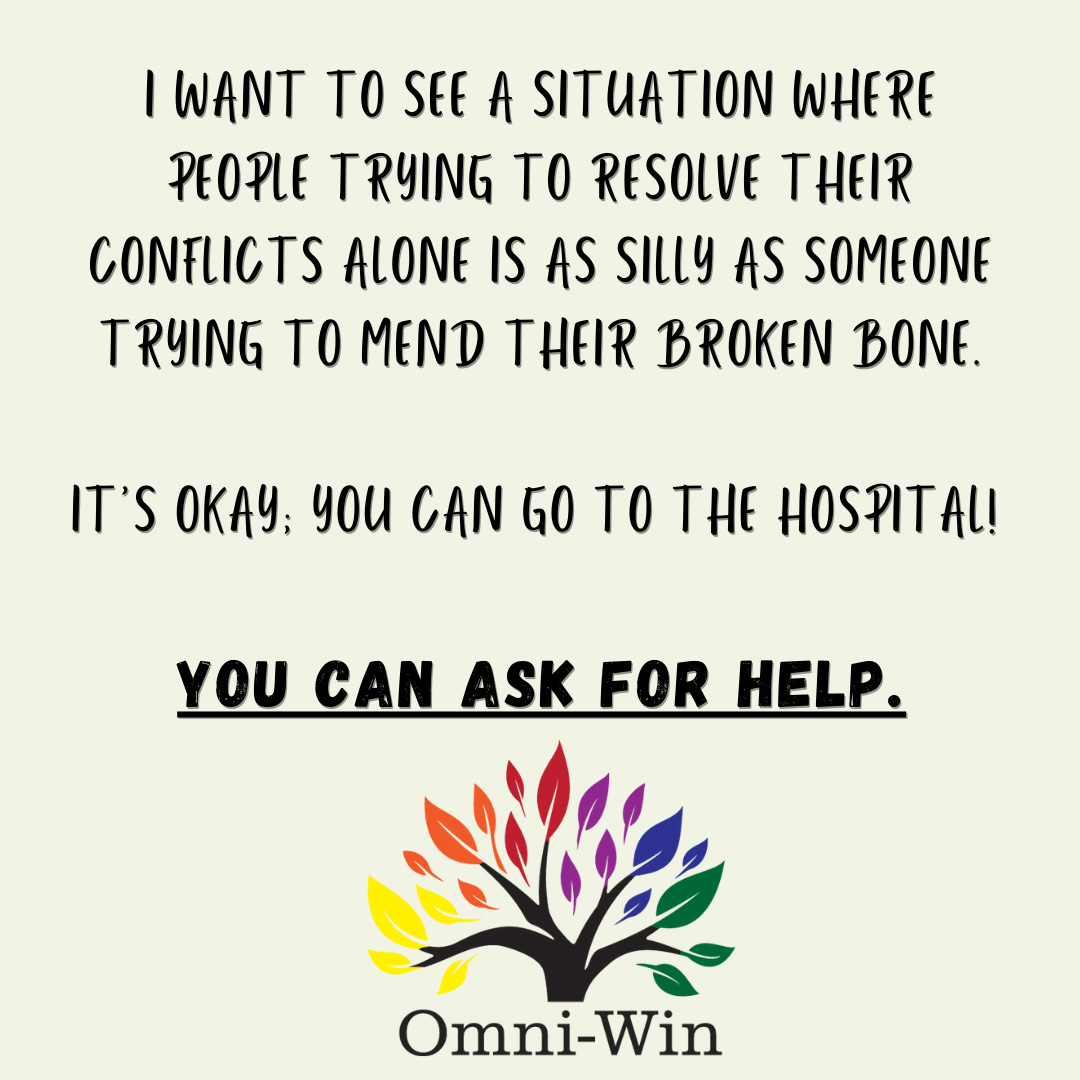Key takeaways:
Things will get worse before they get better, but we have the power to make them better.
We don’t need to figure out the solutions; we just need to change how we think about them.
Us-vs-them thinking is dangerous: We need to focus on omnipartiality.
Conflict from diversity is an opportunity.
How do I avoid hopelessness and despair?
How do I orient myself around reality-based optimism?
As someone in conflict transformation, people often ask me, “Do you think there’s going to be peace in the world? An end to conflict? Is everyone gonna agree someday?”
The answer is no.
Diversity is an inherent precursor to conflict. As long as we have diverse perspectives, lived experiences, histories, we’ll have disagreements. We see things differently, whether it’s the big issues like the climate, oceans, criminal justice, or the penal system. Or just smaller stuff like who’s going to do the dishes and take out the trash?
Diversity and conflict isn’t the issue we think it is.
More perspectives looking at a situation give us a better understanding. It becomes a triangulation: People looking at it differently gives us a fuller picture. We need this diversity. Conflict doesn’t have to be bad.
Despair is a real and understandable feeling. I’m pretty sure things are going to get worse. Our democracy is getting more and more challenging. We’re not effective at making sustainable decisions about important things. The meta-crisis is real. Our capacity for destroying the environment is increasing. So yeah, things are going to get worse for a while.
But I still have hope that we can turn things around. All we need to do is change a couple of things. I’ve taken the idea of memes, a cultural unit of cultural thought. I’m not talking about internet memes here. One of them is rivalrous dynamics, which is from Daniel Schmachtenberger, who I talked about in the last essay.
This idea of us-versus-them, or even that there is an us and them, that’s an illusion. We are interdependent: our success is dependent on other people’s success. My success is dependent on your success. We must shift our thinking from us-versus-them to omnipartiality, a term from Kenneth Cloke from his book Mediating Dangerously. The idea of omnipartiality is a bias in favor of everyone.
Instead of trying to figure out, “What do I want out of this, what’s best for me?” what would it look like to go into any situation with “How do I make sure I’m getting the best of everyone here?”
If omnipartiality is a hard jump for you, remember we’re interdependent, no matter how you look at it. We all live on the same planet, and we’re all going to win, or we’re all going to lose. Our current win-lose dynamic is going to cause the all-lose. If someone tries to win at everyone else’s expense, we’re all going to die.
Another issue is right and wrong thinking: “This is the right way to do something or the wrong way to do something.” It’s so fixed, but we live in a dynamic world. Instead, we need to start thinking about better and worse.
My sense is that we can develop shared ideas about better situations and solutions. To determine those, we need to figure out the question we’re trying to answer for any issue. That way, we can decide what would be better or worse and agree on the criteria for success. From there, there’s always room for improvement.
That points to another memetic shift: We need to stop trying to fix everything. In the United States, everyone’s just hoping for a magical bill to pass that’ll fix everything. We’re in a dynamic, ongoing process.
So, let’s start recognizing, “This is inadequate, but this would be more adequate.” From there, we can find increasing levels of adequacy. It’s not super sexy, but making sure we’re heading in the right direction is going to be huge. Together, we can figure out which direction we want to go. We can do that.
The main shifts: Stop trying to come up with fixed outcomes, stop looking for right and wrong, and stop doing us versus them. We need to shift to better and worse and think about an ongoing omnipartial, omni-win solution.
What would it be like for us to say, “This kind of conflict where we disagree all the time is not good. We can do better than this.” How can we become intolerant of crappy communication? I hope people will ask for help to make it better:
“Let’s ask for help and figure out if someone can do this. Let’s get some communication tools in here. Let’s use a different system to make this decision, this voting over this or that is not working for us.”
I want to see a situation where people trying to resolve their conflicts alone is as silly as someone trying to fix their broken bone. It’s okay; you can go to the hospital! You can ask for help.
If you’re a politician in a situation that’s not working, find someone who can help you make good public policy decisions. Use better tools like citizen assemblies.
This is why I have hope. Let’s demand better communication, decision-making, and collaboration, whatever the issue is. Let’s decide not to leave anyone behind and keep trying to improve things. It’s not a big leap to adequacy. We don’t have to find all the solutions, but we need to insist on a better process to reach those solutions.
This is the end of a long series where I’ve been setting up the introduction to the Omni-Win Project. I can’t do this alone, so this is a recruiting process. I’ll be telling you about it soon. If you haven’t already subscribed, sign up for my newsletter and stay tuned.
This summer, we’ve got a new podcast coming out featuring a lot of rad people with rad ideas. I will show you why I don’t think it’s too far off to be optimistic about the situation. If nothing else, I’m going to try my darndest to make sure that everyone knew they could have done it better, but they can choose not to.
I think we all want to live in a world where we all win, and I’m going to try to make that happen.
If you prefer to watch your content, here’s a video on this essay:
You can find more information about the work I do in conflict transformation on my website: http://www.omni-win.com
You can schedule a call with me here: https://calendly.com/duncanautrey
Don’t forget to check out the rest of my posts as I discuss how we can work together to ensure we all win.
If you’d like to see more of these weekly round-up posts, subscribe to Omni-Win Visions here on Substack:
It would also be great if you could subscribe to my YouTube channel where you can watch more of my long-form content, authentic discussions, and weekly content:



